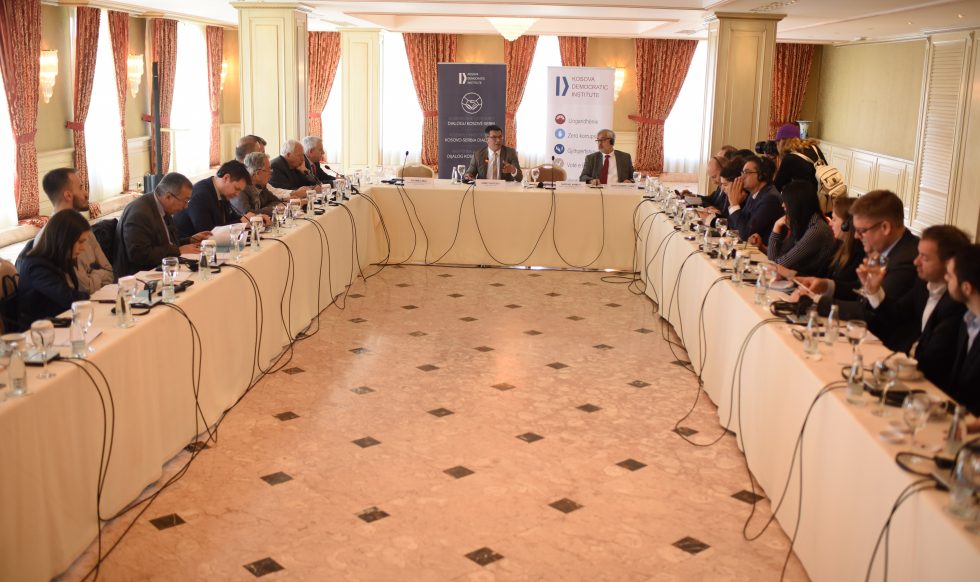


Kosovo Democratic Institute (KDI) held today a round table discussion on the future of Kosovo-Serbia dialogue, in an open debate between members of civil society, the media and the diplomatic representatives in Kosovo.
Ismet Kryeziu, executive director of KDI, at the beginning of the discussion made a general overview of recent developments regarding the Kosovo-Serbia dialogue process. Mr. Kryeziu raised some of the current issues related to the vision about dialogue, coordination of the State Delegation and other constitutional institutions regarding the closing phase of the dialogue, and what will be the role of the Kosovo Assembly in this process. Further, Mr. Kryeziu raised the issue of the content of thedraft law for the state delegation, announcing that KDI has prepared an analysis on this draft law, which KDI has forwarded to the deputies of the Kosovo Assembly.
In the introductory speech, the Ambassador of Switzerland in Kosovo, Jean-Hubert Lebet, offered the perspective of the Swiss state regarding the closing phase of the Kosovo-Serbia dialogue. He stressed that the main lesson in international relations is that redesigning borders has never worked. “We have no example throughout history that with the movement of boundaries with the exchange of territories, there was provided a lasting peace or normalization between the parties that have been in conflict,” he added. The second lesson, according to him, is that one should never pressure the parties to reach an agreement. He further added that “there is no example when” quick solutions “have been stable over a long period of time.” According to Ambassador Lebet, the third lesson is that each peace process must take into account the specifics of the conflict in question. And, according to him, the fourth lesson is that the key element is not the signing of the agreement, but the difference is actually made by the process of implementing that agreement. In the end, the ambassador stressed that for the achievement of an agreement, there is a need for courage and vision from the leaders as well as representatives of both parties involved.
The present members of the civil society at this roundtable raised various issues related to the ongoing process of the Kosovo-Serbia dialogue, where they stressed that the level of implementation of the agreements reached so far has been low. It was also discussed about the powers and mandate of the state delegation, the lack of legitimacy, the lack of political spectrum unity, which was said to be reflected in the lack of institutional co-ordination regarding the closing phase of the dialogue. Particular importance was also given to acts issued by various institutions regarding the dialogue, such as resolutions, draft laws and platforms for dialogue, which were said to have no practical effect without a political will for broad consensus on the political spectrum. Another part of this discussion was the 100% tariff on products imported from Serbia and Bosnia and Herzegovina.
At this roundtable it was foreseen that part of the panel would be the co-chairmens of the State Delegation for the Kosovo-Serbia dialogue, Mr. Fatmir Limaj and Mr. Shpend Ahmeti, but they have canceled their participation at the last moment.
This discussion was organized within the project “European Perspective – Building a National Consensus on the Normalization of Relations with Serbia” supported by the Swiss Embassy in Pristina.